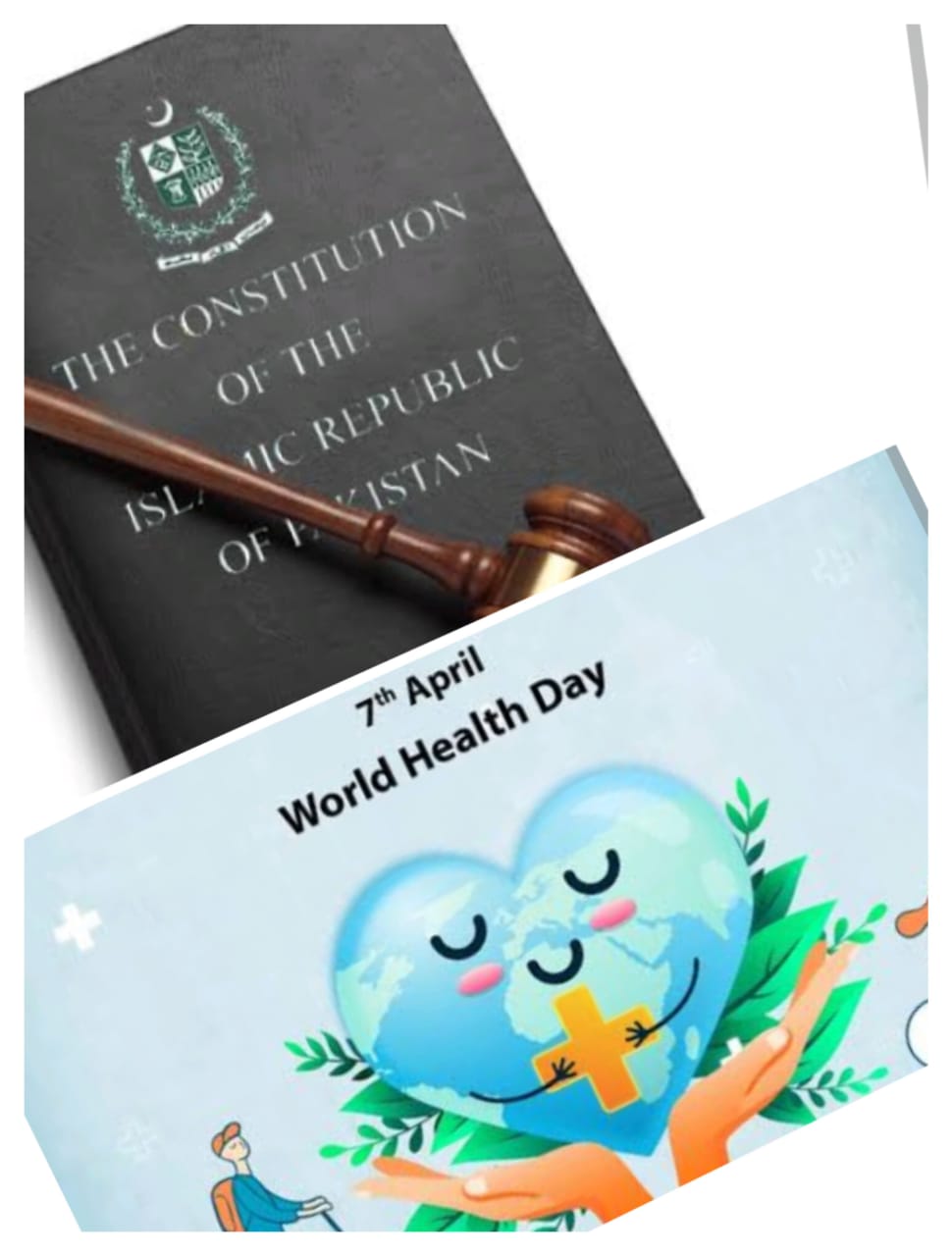Health is recognized as a constitutional right in 140 countries worldwide. However, the Islamic Republic of Pakistan is not among them. It is even more surprising to consider the disregard for this “value” assigned to health in a country that ranks 164th out of 193 nations on the Human Development Index.
The theme of World Health Day 2023 was “Health For All”; for 2022, it was “Our planet, our health”; for 2021, it was “Building a Fairer and Healthier World for Everyone”; and for 2020, it was “Support Nurses and Midwives.” Since 1950, there has been a theme and set of activities generated by the WHO for each year.
The question arises: what has been the impact? According to the WHO’s statement till 2021, at least 4.5 billion individuals—over half of the global population—did not have comprehensive access to essential health services. To address such issues, the focal point for World Health Day 2024 revolves around ‘My health, my right’. The selection of this year’s theme aims to advocate for the entitlement of every individual worldwide to receive quality health services, education, and information. It also emphasizes the importance of access to safe drinking water, clean air, adequate nutrition, quality housing, satisfactory working and environmental conditions, and freedom from discrimination.
Like every year, UN agencies, donors, and their recipient partners will develop a specific set of activities. Pakistani governments in all five regions will mark the day with carefully crafted speeches, symposia, and media advertisements. The op-ed space of mainstream newspapers, especially English ones, will be reserved for special and chosen contributors. Health is a human right, but like all human rights, there will be no room for dissenting voices or differing opinions. The prevailing principle will be “might is right.”
Not only will the gender dimensions of health remain marginalized, but there will also be no attempt to reconsider the health structure and systems through the lens of political economy. The renowned German pathologist, Dr. Rudolf Virchow, stated that “Medicine is a social science, and politics is nothing but medicine on a large scale.”
The political economy of health refers to the analysis and perspectives on health policy aimed at understanding the conditions that shape population health and health service development within the broader macroeconomic and political context. According to Prof. Johan P. Mackenbach, Although Virchow’s analogies between biology and sociology are out of date, some of his core ideas still resonate in public health. This applies particularly to the notion that whole populations can be sick and that political action may be needed to cure them.
Many perpetual students of public health and inequalities, like myself, may find themselves saddened by the disconnect between health and the real world, and the lack of desire to apply an intersectionality lens to health beyond glossy reports and glamorous events. The teeming millions in Pakistan will continue to be deprived of health as a right due to entrenched inequalities and injustices across all sectors and systems. Speaking of the health sector itself, the very foundations are flawed. From admissions and selections of candidates to medical schools, nursing schools, and paramedical arenas, to the distribution of jobs, fellowships, promotions, and other privileges in healthcare, there is not a hint of meritocracy. The few honest individuals struggle hard to fight against the system, while others either surrender and become embedded or leave the country.
The overall elite capture has not spared even this sector. Rest assured that health as a right will never be accepted and accessible to people with overlapping vulnerabilities through elitist entrepreneurship or evidence-generating reports commissioned by blue-eyed consultants. The solution lies in diagnosing the problem of inequality with precision and then devising remedies.
I have abstained from citing statistics to prove my point because I firmly believe that if “numbers” in Gaza and Rafah are failing to move political forces, what stronger case can a public health expert like myself, without a hot seat, present?
The author is a Public Health and GESI Expert and can be reached at dr.r.perveen at the rate of gmail dot com
Dr. Rakhshinda Perveen
Free Thinker|Author|OP-ED Writer|GBV, GESI &Public Health Expert |Founder Chamber of Women Social Entrepreneurs|FounderThink Tank Apna Wallet| Founder کیف کام Kafe Kaam Research & Advocacy Institute|Founder Creative Anger By Rakhshi|Ashoka Fellow| IAF Germany Fellow| BIARI Brown University Fellow| Member ThinkTank World Economic Order, FNF North America |Award winning TV Director for a seminal series “Gender Watch” 1999-2001| Chair Fight Against Dowry Advocacy Network|


Leave a Reply